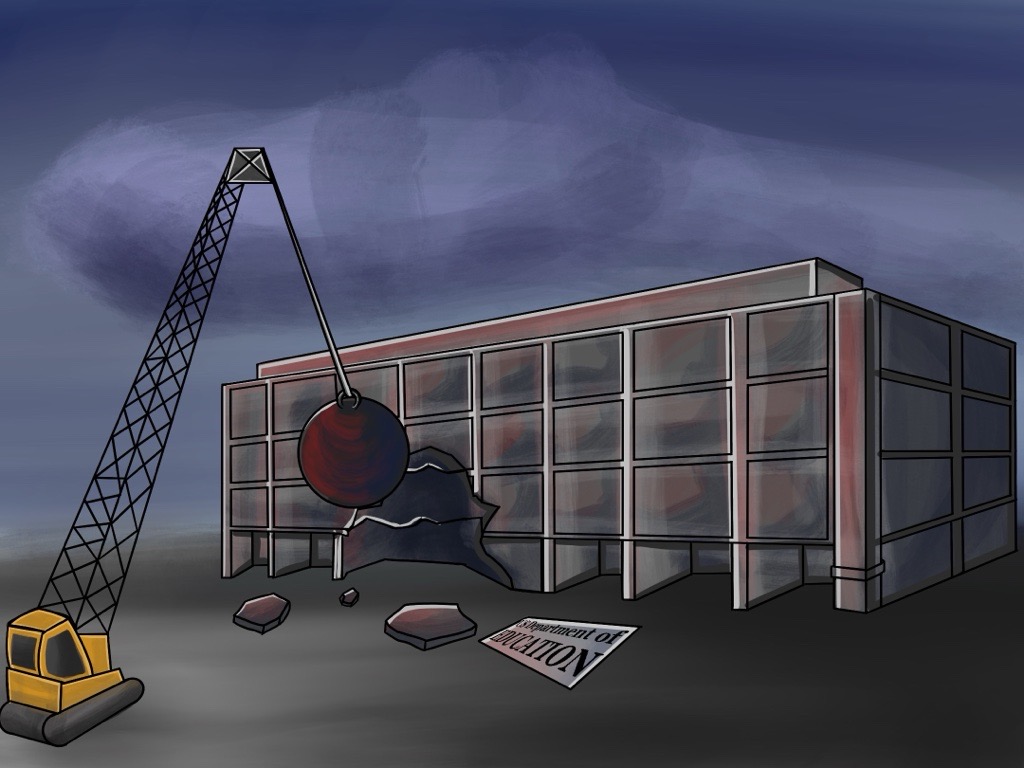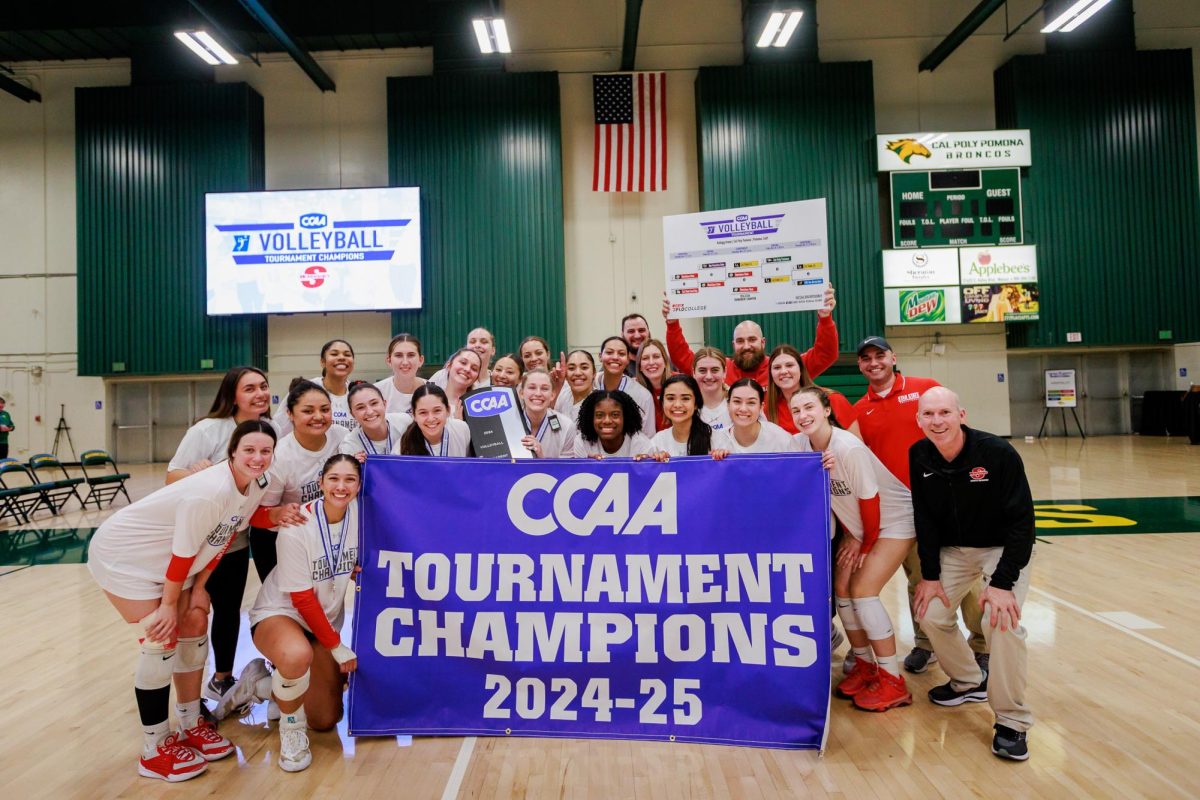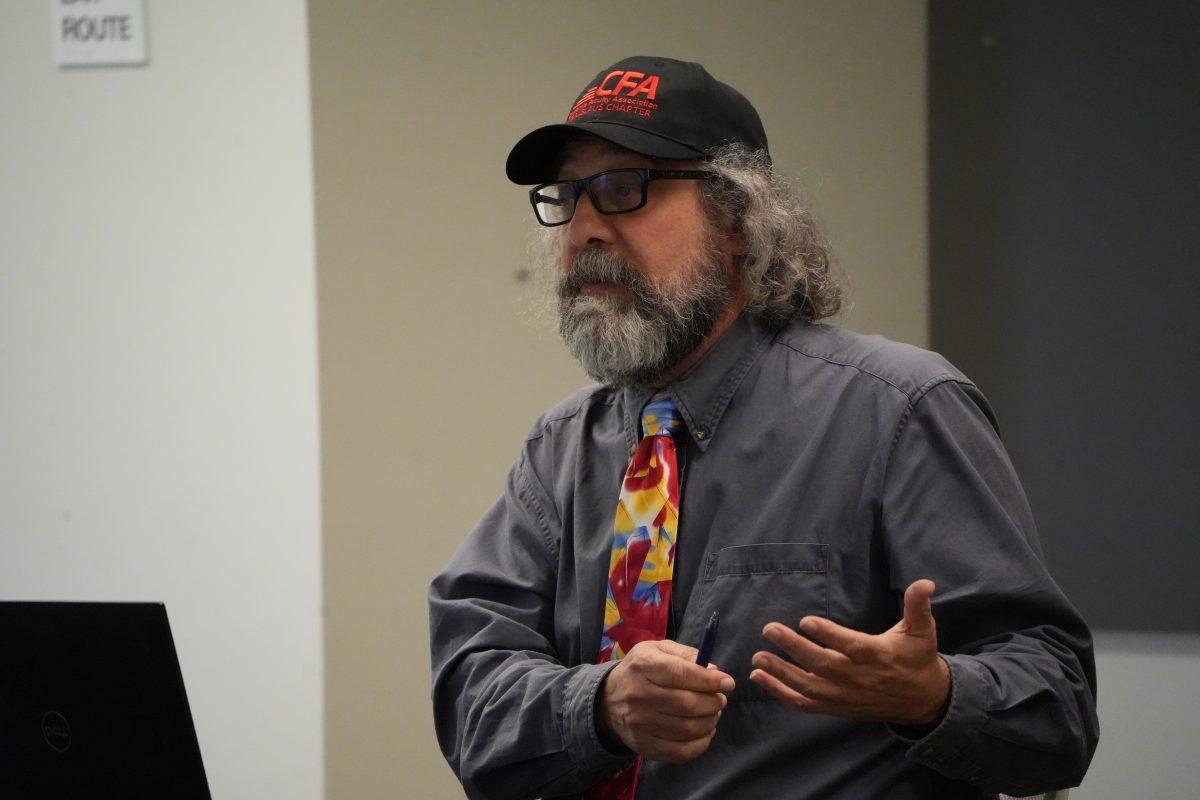Two topics that many might not expect to hear together are climate change and colonialism. However, these topics do intersect. The ethnic studies, geography and biology departments teamed up with the help of five panelists to demonstrate the impact of how these subjects intersect and continue to affect communities.
The panelists included David M. Karabelnikoff from Indian of all Tribes, the Director of Lazos America Unida in New Jersey Teresa Vivar, Tre Vasquez, a youth organizer from the North Bay Organizing Project, Jason Negron- Gonzales from Bay Area Boricuas, and Julie Sze who is part of the American Studies Program at UC Davis. Each of them offered their experiences with climate change.
One climate issue brought up during the seminar was global warming particularly in areas such as Alaska.
“Climate change is a very important issue in Alaska when we talk about when we saw global average temperature change,” Karabelnikoff said.
He added that Alaskan people have suffered from climate change and a settler style of government, “in terms of colonization,” with 60 percent now being federally managed lands.
“When selecting these lands, they look at wildlife and wilderness without native people on the land. They look at Native people as an invasive species,” Karabelnikoff said.
The reality is that indigenous people make up about three percent of the United States population, according to the United States 2014 Census. Although they make up such a small portion of the population, indigenous people continue to fight to protect and conserve the land.
Indigenous populations are affected the most by colonialism, especially when natural disasters occur. Lazos America Unida participated in aiding those areas affected by the earthquakes in Mexico.
“We did many events to collect funds for Mexico. We sent people to deliver food, tents, beds, sleeping bags, and everything else we collected. We knew we had to deliver these items ourselves because we didn’t trust the government,” Vivar said.
Many of the areas aided by Lazos America Unida were populated by indigenous people. Their resources were limited.
“We vistied the Triqui women. They don’t have internet, transportation or phones. They speak only Triqui, and only a few of them speak Spanish. They are still living in the tents we sent them. It was hot and raining. They don’t have water. They have all of their meals with coke. A consequence of this is they have many health problems,” Vivar said.
Another effect colonialism has on climate change is environmental racism. This was evident during the fires that took place in Santa Rosa, Ca.
“I live in Santa Rosa and work as a youth advisor. We have the rainiest winter and the driest summers with fifty miles per hour winds,” Vasquez said, “That would create tornadoes and fires. Text messages to evacuate people were all in English when not everyone that lives there speaks English. This is an example of environmental racism.”
The aftermath of these fires sent Santa Rosa into a housing crisis, Vasquez added.
“We have no rent control. After the fires, rent went up hundreds of dollars. The rights of nature trump corporate rights,” Vasquez said.
The devastation of Hurricane Maria in Puerto Rico, a colony of the United States for the past 120 years, was a direct result of climate change and colonialism.
“Hurricane Maria didn’t hit a resilient Puerto Rico that was adapted to climate change. It hit an island that was a colony that was already facing austerity and financial crisis. Puerto Rico was already in debt about 74 billion which caused resources to be cut like schools and hospitals,” Negron- Gonzales said.
He added that Puerto Rico received an unfavorable response from the government. “In the context of criminal colonialism, we got a criminal disaster response,” Negron-Gonzales said, “The response was there, but it was insufficient.”
After Hurricane Maria, Puerto Rico had even less control of their money and resources.
“In the aftermath of disaster, there is a fiscal control board that governs Puerto Rico, so not even the colonial island government is in control. There is another board of additionally imposed people to manage the extraction of money for Puerto Rico called a fiscal control board. They charged Puerto Rico for its own relief. The Republican tax bill that passed in December tacked on an additional tax on goods entering the United States from Puerto Rico just to kick them a little more while they are down,” Negron- Gonzales said.
He said that this is the time for Puerto Rican citizens to stand up and fight for their country.
“Environmental justice is an academic approach to problems. Climate and economic inequality are absolutely connected. Social and economic inequality makes these disasters deadly,” Sze said.
Students can get involved with these climate issues by studying, participating, and working to end these environmental injustices with organizations like those from which the panelists represent.
Categories:
Climate Change and Colonialism Panelists Describe the Aftereffects of Recent Disasters
Nicole Dunlap
•
March 20, 2018
Panelists speak at the Climate Change and Colonialism seminar at Stan State. (Signal Photo/ Nicole Dunlap)
0
More to Discover








